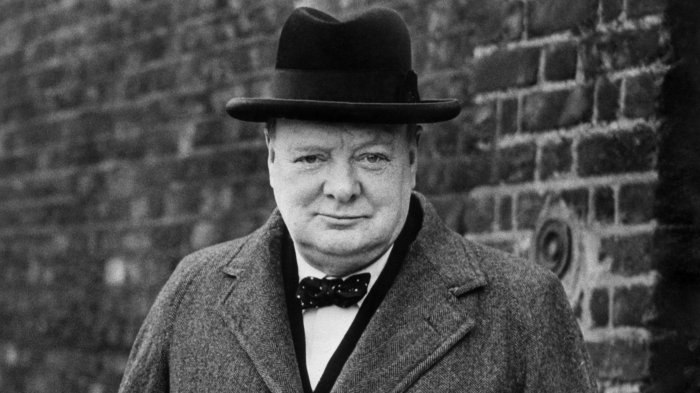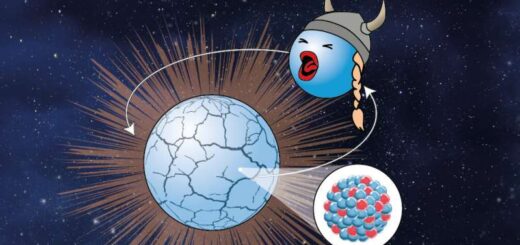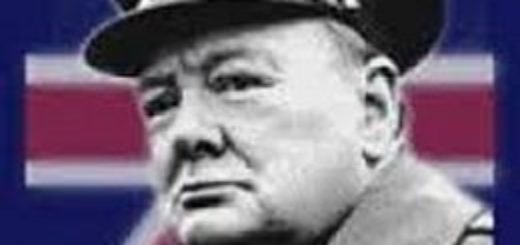Winston Churchill Lost Essay On Extraterrestrial Life Discovered – We Are Not Alone – The British Prime Minister Believed
– Famous for his moral courage and patriotism, the British Prime Minister Winston Churchill, helped steer his nation through World War II.
Sir Winston Churchill (1874-1965) was a wartime leader and undoubtedly one of the most influential politicians of the twentieth century, but did you know Churchill was also a great friend of science?
Researchers have discovered Churchill’s lost essay on extraterrestrial life that shows the Prime minister was very interested in astrophysics, astrobiology, and science in general. He was also convinced extraterrestrials do exist and we are not alone in the Universe.
The essay was found by Mario Livio, an internationally known astrophysicist and author of several bestsellers who wrote an article about it in the journal Nature analyzing Churchill’s work.

During the Second World War, Churchill supported the development of radar and Britain’s nuclear programme. He met regularly with scientists such as Bernard Lovell, the father of radio astronomy and physicist Frederick Lindemann, who was his friend and later became his official scientific adviser.
“With hundreds of thousands of nebulae, each containing thousands of millions of suns, the odds are enormous that there must be immense numbers which possess planets whose circumstances would not render life impossible,” Churchill concluded in his essay. What is truly fascinating is that he wrote these words on the eve of World War II-more than half a century before exoplanets were discovered!
Churchill’s essay and thoughts on extraterrestrial life was 11-page typed draft that was never published. In 2016, but it ended up at the U.S. National Churchill Museum during the 1980s.
Last year, the museum’s new director, Timothy Riley, unearthed the essay in the museum’s archives.
When Mario Livio visited the museum, Riley used the opportunity to hear the astrophysicist’s thoughts on the essay and naturally, Livio was excited to be the first scientist to examine this essay.
“To me the most impressive part of the essay—other than the fact that he was interested in it at all, which is pretty remarkable—is really the way that he thinks,” Livio says. “He approached the problem just as a scientist today would. To answer his question ‘Are we alone in the universe?’ he started by defining life. Then he said, ‘OK, what does life require? What are the necessary conditions for life to exist?’”
According to Mario Livio, “Churchill’s reasoning mirrors many modern arguments in astrobiology. In essence, he builds on the framework of the ‘Copernican Principle’ — the idea that, given the vastness of the Universe, it is hard to believe that humans on Earth represent something unique.
He starts by defining the most important characteristic of life — in his view, the ability to “breed and multiply”. After noting that some viruses can be crystallized, making them hard to categorize, he decides to concentrate on “comparatively highly-organised life”, presumably multicellular life.
The Prime Minister also displayed healthy skepticism.
His first point is that “all living things of the type we know require water”. Bodies and cells are largely composed of it, he notes. Other liquids cannot be ruled out but “nothing in our present knowledge entitles us to make such an assumption.
Churchill also defined what is known today as the habitable zone — that narrow ‘Goldilocks’ region around a star that is neither too cold nor too hot, so that liquid water may exist on the surface of a rocky planet. He wrote that life can survive only in regions “between a few degrees of frost and the boiling point of water”. He explained how Earth’s temperature is fixed by its distance from the Sun.
Churchill also considered the ability of a planet to retain its atmosphere, explaining that the hotter a gas is, the faster its molecules are moving and the more easily they can escape. Consequently, stronger gravity is necessary to trap gas on a planet in the long term.
Taking all these elements together, he concluded that Mars and Venus are the only places in the Solar System other than Earth that could harbor life. He eliminated the outer planets (too cold); Mercury (too hot on the sunny side and too cold on the other); and the Moon and asteroids (their gravities are too weak to trap atmospheres).
“The sun is merely one star in our galaxy, which contains several thousand millions of others,” Churchill wrote.
He discussed the theory of planet formation with the healthy skepticism of a scientist. “But this speculation depends upon the hypothesis that planets were formed in this way. Perhaps they were not. We know there are millions of double stars, and if they could be formed, why not planetary systems?”
The lost essay on extraterrestrial life by Winston Churchill is a remarkable scientific find that presents the WWII leader as person with great scientific curiosity.



 Creators of mankind
Creators of mankind Description of “Tall white aliens”
Description of “Tall white aliens” Where they came from?
Where they came from? About hostile civilizations
About hostile civilizations The war for the Earth
The war for the Earth “Tall white aliens” about eternal life
“Tall white aliens” about eternal life Video: “Nordic aliens”
Video: “Nordic aliens” Aliens
Aliens Alien encounters
Alien encounters The aliens base
The aliens base UFO
UFO Technology UFO
Technology UFO Underground civilization
Underground civilization Ancient alien artifacts
Ancient alien artifacts Military and UFO
Military and UFO Mysteries and hypotheses
Mysteries and hypotheses Scientific facts
Scientific facts


















